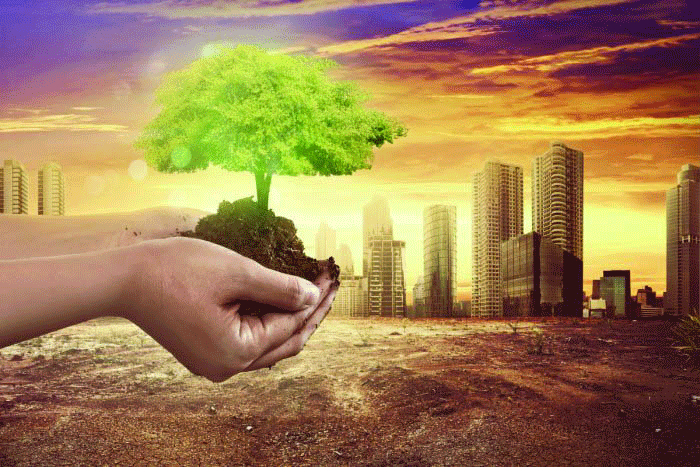Climate crisis no longer a looming crisis: Mia Seppo
Few countries know this better than BD
Industry Desk: UN Resident Coordinator in Bangladesh Mia Seppo has said the climate crisis is no longer a looming one but it is widespread, rapid and intensifying.
“Few countries know this better than Bangladesh,” she said, adding that this pressing issue (climate crisis) will play a central role in the current session of the UN General Assembly.
In a recent programme with the Diplomatic Correspondents Association, Bangladesh, Mia said the recent report of the Intergovernmental Panel on Climate Change (IPCC) is a code red for humanity.
But it also made clear that it is not too late to meet the Paris Agreement 1.5 degree target. “We’ve the tools to achieve this target but we are rapidly running out of time,” said the UN Resident Coordinator. Countries like Bangladesh have not
historically contributed to the problem but are bearing the brunt of its consequences, with the most vulnerable being hardest hit, she said.
While the global outlook is dire, Mia said, the impact on the Asia Pacific is particularly alarming.
Sea-level rise is reportedly occurring faster than the global average and the region is predicted to experience more intensive heat waves and heavier rainfall in the decades to come, said the UN official.
Moreover, with the majority of the world’s poor in the Asia Pacific, the impacts of climate change threaten to push millions more into poverty and hardship, she said.
For Bangladesh, Mia said, the IPCC predicts more frequent high-intensity cyclones and storm surges they create, which are particularly devastating for already-vulnerable coastal regions undermining livelihood security, food and water security, and fuelling internal displacement and migration.
She said climate change threatens to increase the level of poverty and inequality, pushing poorer Bangladeshis into situations of protracted economic uncertainty.
And as urban migration increases in the years to come, Mia said, public infrastructure will be put under further stress, creating a host of social protection concerns for those already at risk.
According to a recent report, sea-level rise alone is predicted to submerge 17 percent of the country by 2050, leaving approximately 20 million people homeless.
Mia said this does not take into the account the millions more who will be forcibly displaced by extreme weather events or the slow-onset impacts of climate change, such as saltwater intrusion.
In line with continued global leadership on climate advocacy, the UN official acknowledged that Bangladesh, as the chair of the Climate Vulnerable Forum, has made a similar plea for greater recognition of the cross-cutting impacts of climate change on human rights, peace and justice.
Mia hoped that Bangladesh will use the expertise for advancing the human rights, climate and environmental justice agenda domestically, too.
DCAB President Pantho Rahaman and its General Secretary AKM Moinuddin also spoke at the DCAB Talk held at Foreign Service Academy on Sunday.
President Joe Biden tests positive for COVID-19 while campaigning in Las Vegas, has ‘mild symptoms’
International Desk: President Joe Biden tested positive for COVID-19 while traveling Wedne…








